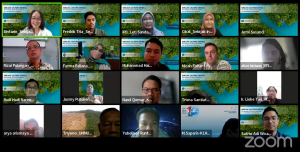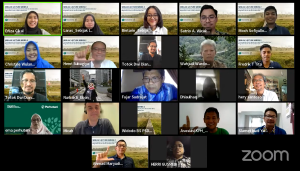Since the late 1990s Reformation era, Indonesia’s forest governance has served as a pivotal element of its environmental strategy, emphasizing efforts to combat deforestation, restore degraded landscapes, and promote the active involvement of local communities in sustainable management practices. While Indonesia has made significant strides in improving forest governance, there are still challenges such as regulatory overlaps, ambiguous legal definitions, and weak enforcement mechanisms. Addressing these gaps is crucial to achieving the country’s commitments under the Sustainable Development Goals (SDGs) and its Nationally Determined Contributions (NDC) to the Paris Agreement.
In 2021-2022, the EU REDD Facility (EFI) and Sebijak Institute conducted a comprehensive evaluation of Indonesia’s legal and policy frameworks, particularly concerning forest conversion and restoration. The study aims to enhance the understanding of policymakers and stakeholders by evaluating recent regulatory changes, analyzing their impacts, and offering practical recommendations to combat deforestation, promote restoration, and support indigenous and local communities.
The study focused on:
- Assessing the impact of the Job Creation Law (Law 11/2020) and its implementing regulations on forest governance.
- Evaluating the existing legal framework for forest restoration and rehabilitation, including its practical implementation.
By integrating desk research and interviews with key stakeholders, the analysis offers valuable insights and recommendations to strengthen Indonesia’s forest governance and restoration initiatives. These efforts aim to ensure the preservation of Indonesia’s invaluable forests while supporting the country’s sustainable development goals.
PUBLICATIONS
- Potential Impacts of Law Number 11/2020 on Job Creation and Its Implementing Regulations on The Forest and Land-Use Sector.
Policy brief
Working paper - Forest rehabilitation and restoration in Indonesia: Policy developments and progress towards climate targets.
Policy brief
Report - Recent challenges and opportunities for land and forest rights and tenurial conflict resolution in Indonesia: three case studies of community-based forest management.
Brief
For more information please visit EU REDD Facility


